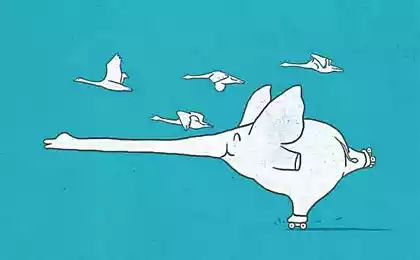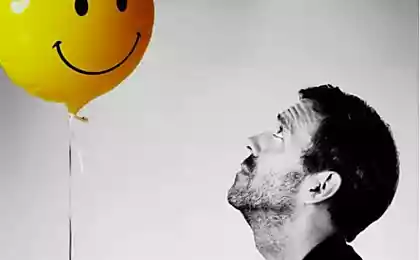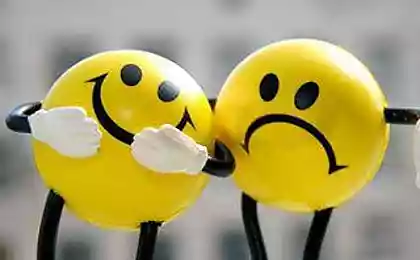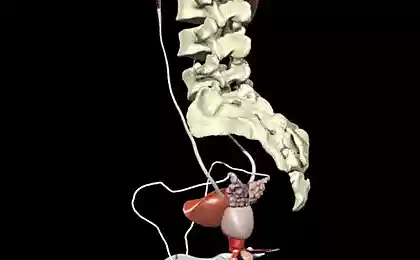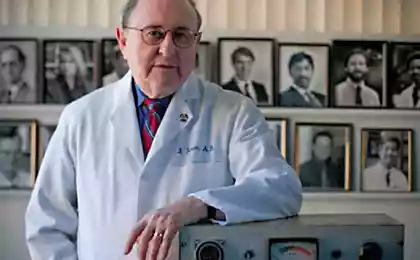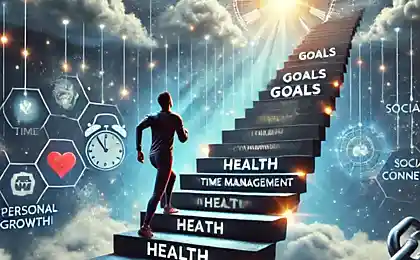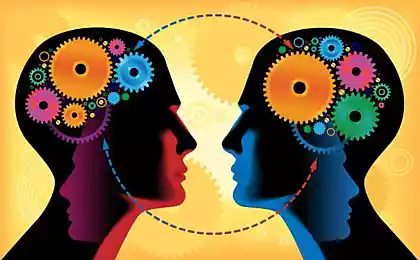499
To be an optimist or a pessimist — which is better
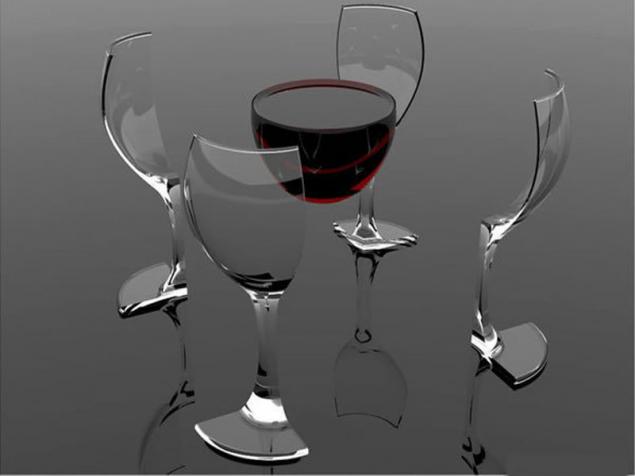
Scientists from different countries tried to find a scientific explanation for the phenomenon of "positive thinking", which so often tell psychologists and other charlatans. Not found: positive thinking actually does more harm than good.
The essence of the concept of positive thinking is that we all need to smile more and more often dream of. Like, if we visualize our dream, then it has more chance of becoming reality. But the hard science says the opposite: the more we dream, the more miserable and unsuccessful in result.
The British newspaper the Guardian talks about the experiment conducted in 2011 by psychologist Gabriel Oettingen from new York University. He left the volunteers without water. One area suggested to think more about water, dreaming about her, and other such instructions were not given. The result was that people from the first group were not motivating people to get up and head to the cooler or the faucet. The second was not such a problem.
The Times newspaper says that Ottinger spent a lot of similar experiments. Watching people who mentally imagined the implementation of minor fantasies (for example, about the victory in the essay contest), the researchers found that they have decreased blood pressure. This is surprising: positive fantasies allow us to relax to such an extent that it is reflected in the physiological tests", — quotes the edition of words from the book of Ottingen "Rethinking positive thinking", released in the USA last week.
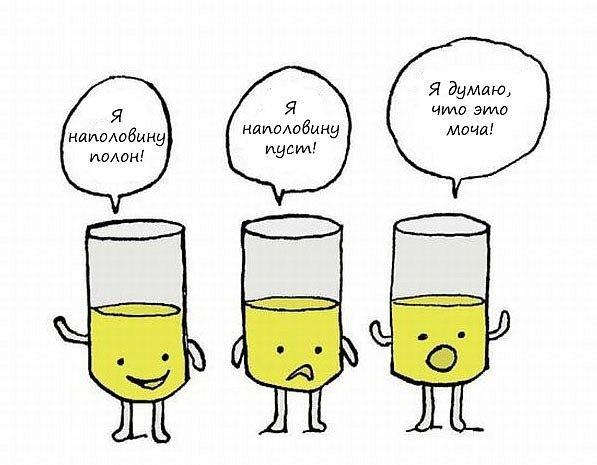
In General, the more people fantasize, the less chance they have for success in the new endeavor. This directly contradicts one of the Central tenets of pop psychology: the idea that the idea of a desirable future brings it into our reality.
"To say that if we focus our positive energy and focus on our dreams, our desires and goals, in the end, will come true. But people just played out, fantasizing that way. They are already enjoying the future, so why should they work to realize this future, if it's already in their head, and they can immensely enjoy?", — concludes Ottingen.
In General, positive thinking is one of the greatest deceptions that takes power to action, not a benefit.
"Even the concentration on the objectives, this ubiquitous motivational technique of managers is not clearly positive, — writes The New York Times. — Over-zealous concentration on goals can distort the global mission of the organization in a desperate attempt to realize some narrow task, besides the studies of a number of professors of business schools have shown that employees who are obsessed with order, may violate ethical norms."
Ancient philosophers and spiritual teachers understood the need for balance between positive and negative, optimism and pessimism, desire for success and security and the readiness to failure and uncertainty. The Stoics were advised to practice "mental precession of evil", i.e. the deliberate visualization of the worst-case scenario. It helps to reduce anxiety about the future: when you soberly imagine the most negative scenario, you usually come to the conclusion that I could cope.
Psychologists Julie NOREM and Nancy Cantor conducted a number of studies comparing strategic optimists and defensive pessimists. If you're a strategic optimist, you envision the best outcome and then happily making plans for its implementation. If you're a defensive pessimist, even if you were successful in the past, you know that this time things could be different. You begin to imagine everything that can go wrong.
Now researchers have found that pessimists succeed more often, and it is because of this character traits. This happens because the alarm if it does not pass certain limits, transformirovalsya in action. Imagining the worst-case scenario, defensive pessimists get the motivation for more extensive training and more diligent effort.
A typical example of such a pessimist — Steve jobs, says The Wall Street Journal. If we can succeed, thinking about death more often than we usually do?
"Remember that you die, is the best way not to be trapped into thinking that you have something to lose," he said.
источник:lifter.com.ua
Source: /users/1077
35 ideas for inspiration — Scandinavian style
Sworkit is the app for home workouts with a huge database of exercises
